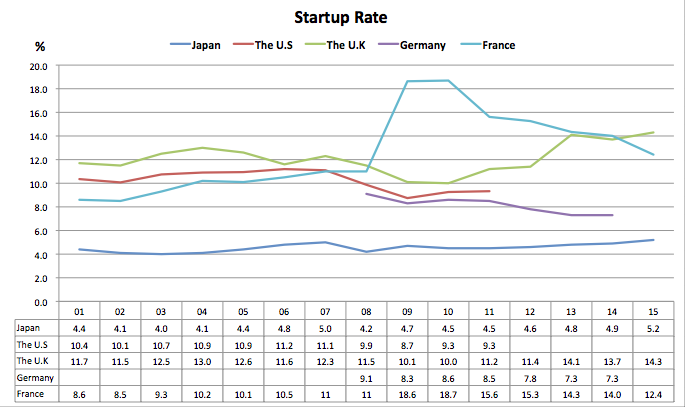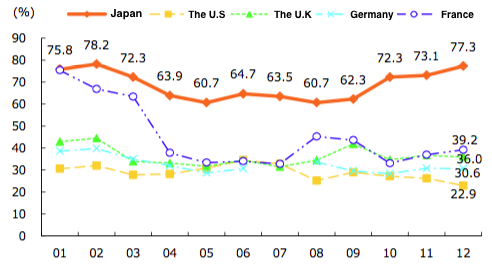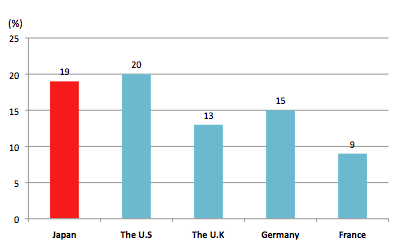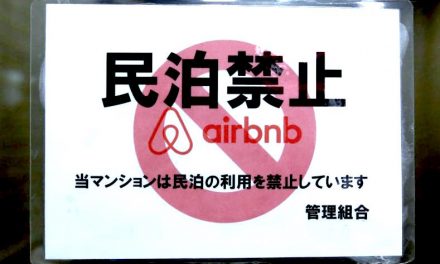
The startup condition in Japan

In April 2017, the Small and Medium Enterprise Agency {a part of METI (Ministry of Economy, Trade and Industry)} released a new white paper regarding small and medium-sized enterprises in Japan.
*White paper: An authoritative report or guide which informs readers concisely about a complex issue and presents the issuing body’s philosophy on the matter. It is meant to help readers comprehend an issue, solve a problem, or make a decision.
The report also covered the startup condition in Japan. So I’d like to share some facts according to the new white paper.
The comparison of startup rate

Source: U.S. Small Business Administration「The Small Business Economy」, U.K Office for National Statistics「Business Demography」, Germany Statistisches Bundesamt「Unternehmensgründungen, -schließungen: Deutschland, Jahre, Rechtsform, Wirtschaftszweige」, France INSEE「Taux de création d’entreprises」, Japan the Ministry of Health, Labor and Welfare
In the previous posts, I mentioned that the startup scene has become vibrant in Japan recently. However, according to the new white paper, the startup rate is still very low by international standards.
For instance, in 2011, the rate of Japan was 4.5%, which is less than half of France (15.6%), the U.K (11.2%) and the U.S (9.3%). *Btw, the rate of Sweden was 7.1% in 2011.
The latest figures (2015) that we could see are just Japan, the U.K and France, but the gap became even wider.
The rate of people who are indifferent to starting new businesses

Source: “2013 the report on entrepreneurship”
In contrast, the rate of people who are indifferent to entrepreneurial activities is significantly high in Japan.
The rate of people having interests in entrepreneurial activities and actually starting up new businesses

Source: “A comparison analysis of factors affecting entrepreneurial activities”
Although the startup rate in Japan is lower than other countries, the rate of people having interests in entrepreneurial activities and actually starting up new businesses is high (after the U.S).
Therefore, raising interests in entrepreneurial activities might lead the startup rate to improve.
The reason why Japanese entrepreneurs began to be interested in starting up new businesses
| 1 | 2 | 3 | ||
| Under 40 | Male (n: 961) | The influence of entrepreneurs around them (40.7%) | They couldn’t do what they wanted to do at their previous companies (29.2%) | Anxiety about the future of their previous companies and deterioration of treatment (27.5%) |
| Female (n: 75) | Other’s recommendations (33.3%) | Changes in home environment like marriage and childbirth (25.3%) | The influence of entrepreneurs around them (22.7%) | |
| 50s | Male (n: 809) | Anxiety about the future of their previous companies and deterioration of treatment (35.7%) | They couldn’t do what they wanted to do at their previous companies (28.4%) | The influence of entrepreneurs around them (27.3%) |
| Female (n: 107) | Other’s recommendations (37.4%) | Changes in home environment like marriage and childbirth (29.0%) | They couldn’t do what they wanted to do at their previous companies (23.4%) | |
| Over 60 | Male (n: 949) | The influence of entrepreneurs around them (25.2%) | Other’s recommendations (21.9%) | Anxiety about the future of their previous companies and deterioration of treatment (21.7%) |
| Female (n: 99) | They couldn’t do what they wanted to do at their previous companies (30.3%) | Other’s recommendations (26.3%) | They’d had licences and qualifications that they could apply to their new businesses (24.2%) | |
Source: MUFJ Research & Consulting
*Multiple answers
According to the research conducted by MUFJ Research & Consulting, a number of Japanese entrepreneurs were stimulated and/or influenced by others around them when they decided to launch their new businesses. (=”Other’s recommendations”/ “The influence of entrepreneurs around them”)
Therefore, creating environments where people could engage with entrepreneurs would be a very important factor in order to promote startup activities.
To be continued …
Sponsored Link




























